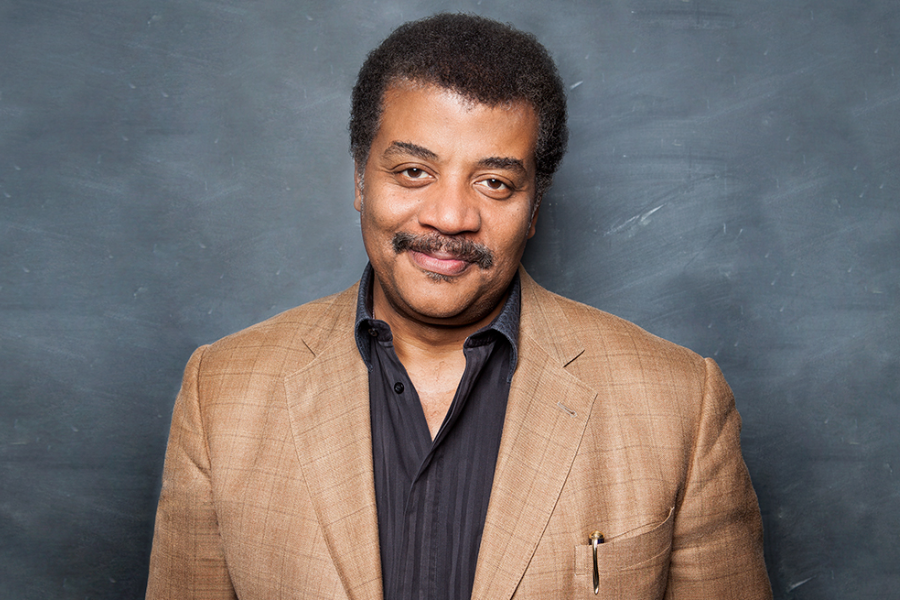
Neil Degrasse Tyson
Neil deGrasse Tyson is a name synonymous with astrophysics, science communication, and a fascination for the cosmos. Renowned for his ability to make complex scientific concepts accessible to the general public, Tyson has had a significant impact not only within the scientific community but also in popular culture. Through his numerous books, TV appearances, and public lectures, he has brought the mysteries of the universe into living rooms, sparking curiosity and inspiring countless individuals to look beyond Earth’s horizon.
Early Life and Background
Neil deGrasse Tyson was born on October 5, 1958, in New York City. His interest in the universe began at an early age, influenced by his family’s frequent visits to the Hayden Planetarium at the American Museum of Natural History. Tyson credits his early exposure to this space-focused environment as a key factor in igniting his passion for astrophysics. From the age of nine, he was captivated by questions about the stars, planets, and the origins of the cosmos.
Tyson’s curiosity about the universe didn’t wane as he grew older. After completing high school in the Bronx, he pursued his studies in physics and astronomy at Harvard University, earning his Bachelor of Arts degree. He continued his education at the University of Texas at Austin, where he obtained a Master of Arts and later a Ph.D. in astrophysics. His academic journey led him to explore various astronomical phenomena, including star formation and cosmic evolution.
Career and Contributions
Neil deGrasse Tyson’s career has been largely defined by his dedication to making astrophysics accessible to the public. His ability to break down complex scientific topics into simple, digestible explanations has earned him widespread acclaim. Tyson has authored several books, including Death by Black Hole and Astrophysics for Young People in a Hurry, which aim to demystify science and connect it with everyday life.
One of Tyson’s most notable contributions is his role as the director of the Hayden Planetarium in New York City. His tenure at the planetarium, where he began in the early 1990s, allowed him to combine his passion for teaching with his role as a communicator. Under his leadership, the planetarium became a hub for public engagement, offering interactive experiences that brought the wonders of the cosmos to life.
Making Science Popular
Tyson’s ability to communicate complex ideas to a broad audience is one of his most significant achievements. He has appeared on numerous television programs, including The Daily Show and Cosmos: A Spacetime Odyssey. The latter, a modern reboot of Carl Sagan’s Cosmos, brought Tyson into the homes of millions of viewers worldwide. His engaging storytelling and knack for connecting abstract concepts to real-world phenomena have made science more relatable.
One of Tyson’s trademarks is his enthusiasm for answering questions about the universe. His famous “Cosmic Queries” segments, where he responds to questions from the public, highlight his commitment to sharing knowledge. Tyson’s style of communication blends curiosity with a sense of wonder, which helps demystify the vastness of space and instills a sense of awe in his audience.
Influence on Popular Culture
Neil deGrasse Tyson’s influence extends far beyond the realm of academia. His presence in popular culture has made astrophysics more accessible to the public, turning abstract concepts like black holes, dark matter, and the Big Bang into topics of casual conversation. Tyson has appeared on podcasts, talk shows, and social media platforms, where his infectious curiosity has made him a beloved figure.
In addition to media appearances, Tyson has played a role in reshaping how science is perceived in entertainment. His collaborations with filmmakers and writers have resulted in projects that blend scientific accuracy with captivating storytelling. His voiceover work in documentaries and his involvement in producing content that bridges the gap between science and entertainment have contributed to his status as a cultural icon.
Philosophy of Science and Skepticism
Neil deGrasse Tyson is a strong advocate for scientific skepticism. He believes in questioning claims and relying on evidence to understand the world. His approach emphasizes critical thinking and a commitment to the scientific method. Tyson’s philosophy often challenges pseudoscience and misinformation, encouraging people to base their beliefs on verifiable facts rather than myths or conjecture.
Tyson’s approach is rooted in his passion for curiosity and exploration. He often discusses how humans are naturally inclined to seek answers, and science is the tool that allows us to understand the universe in a systematic way. His promotion of scientific literacy and skepticism has resonated with audiences who value reason and evidence-based thinking.
Private Life and Family
While Neil deGrasse Tyson’s public life is widely celebrated, his private life remains relatively discreet. Tyson is known to have a strong commitment to his family, including his wife, Alice Young, and their two children, Travis and Miranda. He prefers to keep his family out of the public spotlight, focusing instead on his scientific endeavors and public outreach.
Tyson has often spoken about balancing his professional life with his responsibilities as a father and husband. Despite his fame, he values privacy and strives to maintain a separation between his personal and professional lives. His dedication to his family is evident in his interviews, where he often discusses the importance of fostering curiosity and critical thinking within his household.
Legacy and Impact
Neil deGrasse Tyson’s legacy is one of inspiring curiosity and a deeper understanding of the cosmos. His contributions to science communication have broadened the audience for astrophysics, helping to cultivate a generation of scientifically literate individuals. Tyson’s ability to make science accessible, engaging, and relevant has ensured that his influence extends beyond academia and into the cultural fabric of modern society.
Through his books, public appearances, and media engagements, Tyson has made significant strides in promoting a passion for exploration and discovery. His emphasis on questioning, curiosity, and the pursuit of knowledge has established him as a guiding figure for those eager to explore the mysteries of the universe.
In conclusion, Neil deGrasse Tyson’s impact on science communication is profound. His ability to make complex topics understandable, his advocacy for scientific skepticism, and his dedication to inspiring curiosity have made him a beloved figure in both the scientific and cultural worlds. Whether through his lectures, media appearances, or books, Tyson continues to play a vital role in encouraging a deeper appreciation for the wonders of the cosmos.
Explore the Latest Insights and Discussions at ventswired.


